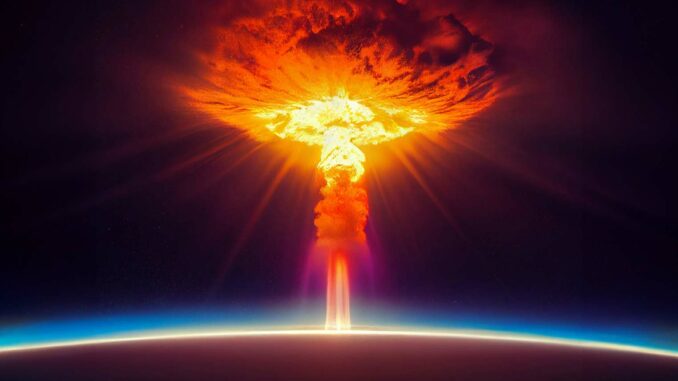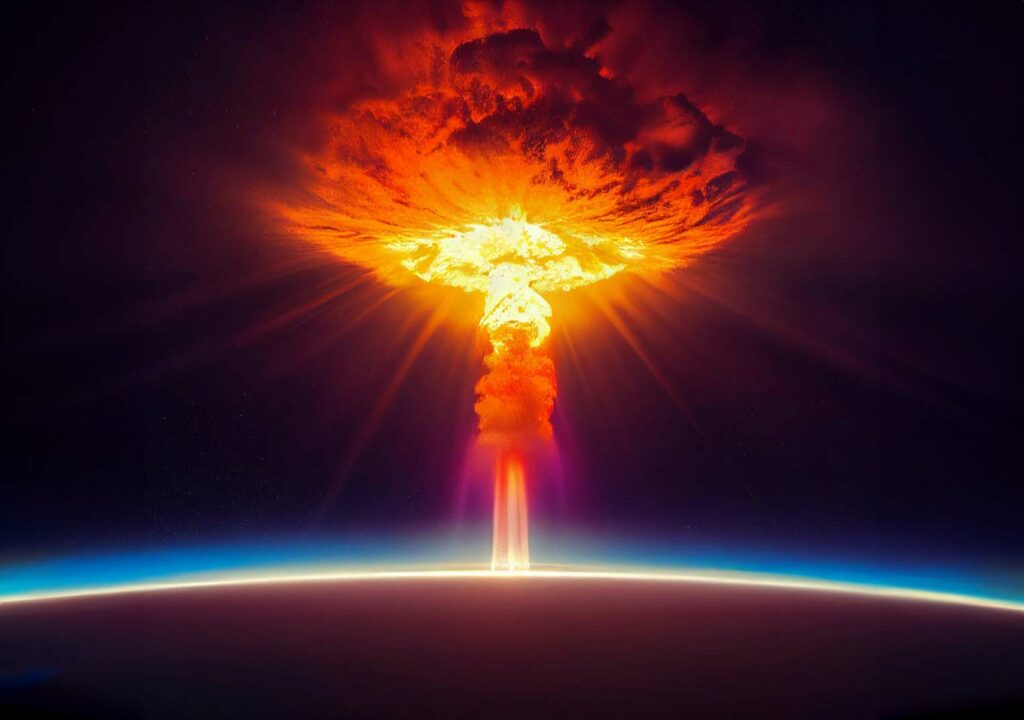
A detailed exploration of Russia’s new space nuclear capability, its technical, legal and political implications, and the associated risks.
The revelation of a possible Russian space nuclear weapon is causing worldwide concern. This development suggests a major disruptive potential, not only for space infrastructures but also for the global geopolitical balance. This article explores the technical aspects, strategic context and potential repercussions of this capability, assessing the impact on space security and international relations.
Nuclear weapons in space: a worrying development
Russia is apparently developing a nuclear weapon for use in space, capable of destroying military and civilian satellites indiscriminately. This capability, although not yet operational, represents a qualitative leap in the militarization of space, introducing unprecedented risks. Existing anti-satellite weapons, though diversified, lack the indiscriminate destructive impact of a nuclear explosion, which could damage or annihilate satellites over a wide radius, affecting space infrastructures vital to many terrestrial applications.

A space strategy under strain
Russia’s decision to develop such a weapon comes against a backdrop of heightened space competition, where domination of space is synonymous with strategic superiority. Historically, space powers such as the USA and the USSR have conducted high-altitude nuclear tests, but international treaties such as the 1967 Space Treaty have since sought to limit the militarization of space. Russia’s introduction of a nuclear weapon challenges these agreements, defying established norms and risking a new space arms race.
Impact and international reactions
The implantation of such a weapon in orbit could trigger a cascade of consequences, ranging from the violation of international treaties to Russia’s increased diplomatic isolation. The implications go beyond the simple risk of satellite destruction, threatening the stability of space and ground operations and potentially catalyzing military escalation. Likely reactions would include tightened sanctions, a deterioration in relations with key allies such as China, and a general increase in geopolitical tensions, with a high risk of misunderstandings or accidental conflicts.
The stakes go beyond mere technical capability; they touch on the governance of space, a resource that has become crucial to modern society. The introduction of nuclear weapons into this environment, hitherto relatively untouched by explicit militarization, could redefine the rules of the space and terrestrial game, necessitating a reassessment of security and defense strategies on a global scale.
Russia’s potential space nuclear weapon represents a turning point in the militarization of space, with profound implications for international security, space stability and existing legal frameworks. The implications of this capability, should it become operational, would be profoundly transformative, forcing a global reassessment of space and ground strategy, while underscoring the urgent need to strengthen or revise international agreements to prevent military escalation in space.
War Wings Daily is an independant magazine.